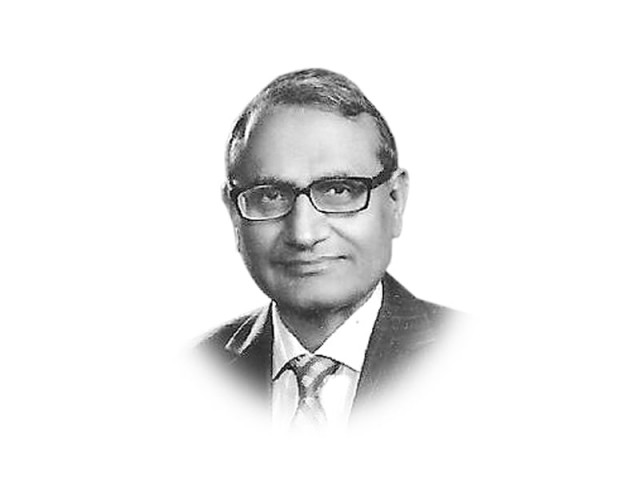A convocation and a thought
If only coming together of 3 main parties at the dais of BNU convocation could in future form a grand coalition.


The keynote speaker was Dr Hafeez Shaikh, a PPP senator and finance minister. He flew into Lahore the night before from Washington DC, after an unfinished innings with the IMF. He did not look retired hurt. Away from the donors and ongoingness of a ministry where no more rather than do more is the refrain, Dr Shaikh felt relaxed and happy speaking to the youth, the real change-makers. They do not embody the “cynicism of those who got the most out of this country.” He extolled the achievements of civil society and the private sector. Edhi and Abdus Salam were mentioned, as was Nasreen Kasuri. Like a loyal PPP man, the sacrifices of Benazir Bhutto were remembered. Of matters economic, nothing much was said. The economist in him was, perhaps, jet-lagged. But the achievements where all parties came together were narrated with great admiration. The Seventh Finance Commission Award, the Eighteenth Amendment to the Constitution, the restoration of an independent judiciary and the establishment of an autonomous Election Commission were singled out as the outstanding examples of our collective genius. So they are. How much one wished, though, that he would underscore the desirability of coming together on the Accountability Bill.
Dr Shaikh did not “wish to talk like a partisan.” This precisely is the issue. The haste with which the PML-N left the federal coalition with the PPP was a mistake. It would have achieved much more by persisting with a bipartisan setting than it did as ‘friendly’ opposition. While problems have magnified, there is nothing to suggest that the coming elections are likely to throw up a single winner. If only the coming together of the three main parties at the dais of the BNU convocation could be projected into future to form a grand coalition. The vicissitudes of our short history tell us that the country is more diverse than its founding fathers had thought. Unity in diversity is the real test of the art of the possible. It is just a thought, provoked by the diverse political presence at a convocation. Or, was it a representation at technocratic level, whose coming together is not unusual?
Published in The Express Tribune, December 15th, 2012.













COMMENTS
Comments are moderated and generally will be posted if they are on-topic and not abusive.
For more information, please see our Comments FAQ